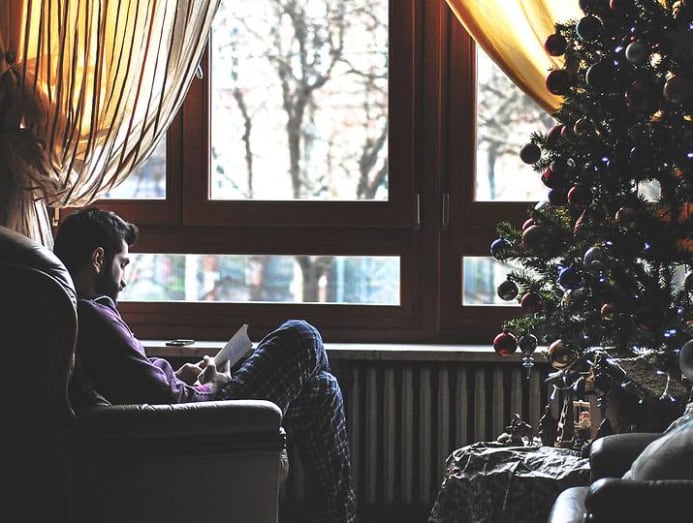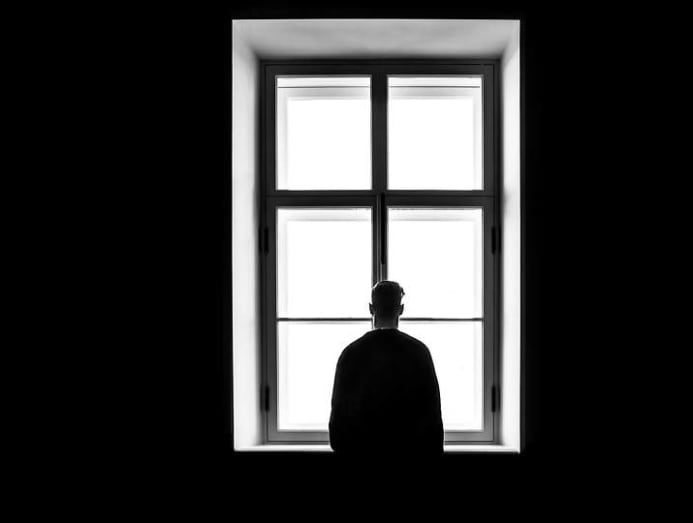Unhappy Holidays: Coping with loneliness over the festive season
It’s the holidays but not everyone is jolly. For lonely hearts, the festive season can bring on feelings of gut-wrenching loneliness. Find out how to cope if you are one of them.

(Photo: Unsplash)
Tis the season to be jolly. But for 55-year-old businesswoman and divorcee Jennifer*, the year-end festivities are both a blessing and a burden.
Jennifer, who did not want to be identified for this story, said: “I am fortunate to have my extended family and friends. But these social gatherings sometimes worsen my sense of loneliness because they remind me of a time when I once had a happy and complete family.”
Her only child is studying overseas. To avoid worrying her loved ones, particularly her ageing parents, she has learnt to fake positivity and confidence.
“Ironically, I think faking festive cheer actually makes me feel worse and lonelier than ever,” she said.
Whether you are a well-to-do empty nester, high-flyer who travels frequently for work or a homesick undergraduate studying overseas, the holiday season can bring on feelings of gut-wrenching loneliness – even when one is surrounded by people and material comforts.
Jennifer is not alone in her struggles with loneliness and disconnection.
In a 2017 survey conducted by AARP (formerly the American Association of Retired Persons) Research, which looks at behaviours and needs of 50-something adults, about a third of over 1,000 respondents reported feeling lonely during the holiday season. Around 41 per cent said they have worried about a family member or friend feeling lonesome.
Closer to home, a study released earlier this year by the Duke-NUS Medical School found that one in three Singaporeans aged 60 and older feels somewhat or mostly lonely.
Dr Kim Lian Rolles-Abraham, a clinical psychologist at Better Life Clinic, said that people have a fundamental need to be connected to other people.
“Humans are designed to be social beings, and connection with others is crucial for both physical and mental well-being. When there is an absence of these connections on a prolonged basis, loneliness sets in,” she said.

READ> Friendships have a bigger impact on your health than romantic relationships
WHO GETS LONESOME
People who have fewer relationships in general, such as the elderly, those grieving the loss of important people in their lives, as well as socially-isolated individuals, tend to feel lonely, Dr Rolles-Abraham said.
While people who are socially-isolated run a greater risk of feeling lonely, intense loneliness can also happen when the person is surrounded by people, as in Jennifer’s situation.
“This can happen when the person is preoccupied with other concerns and can’t fully immerse herself in the occasion,” Dr Rolles-Abraham said.
“Also, those who suffer from mental illnesses such as depression, post-traumatic stress disorder and social anxiety may be unable to socialise freely and feel detached from others due to their struggles, leading to a greater sense of loneliness.”
WHY THE HOLIDAY SEASON WORSENS LONELINESS
For workaholics and people who are estranged or separated from their family members, entering the holiday season without having social activities planned can be depressing.
Dr Lim Boon Leng, a psychiatrist at Dr BL Lim Centre for Psychological Wellness, said the holidays are a time when colleagues and friends who are usually available may be busy with their own families.
“While being alone can be ignored at other times with one being distracted by work and social activities, loneliness becomes glaring during the holiday season,” he said.
Material comforts do little in alleviating loneliness, he added. “In fact, having material comforts without someone to share with can indeed remind one of his or her loneliness.”

READ> Commentary: Retail therapy won’t repair your damaged sense of self-worth
Social media, which seems to keep people connected, can also accentuate loneliness during the festive period.
“In many ways social media allows people to stay connected but the connections and bonds made over social media are often superficial. For those who are alone and have little social support, seeing others posting pictures of friends and family gatherings can remind them of their situation,” Dr Lim said.
“In many ways social media allows people to stay connected but the connections and bonds made over social media are often superficial. For those who are alone and have little social support, seeing others posting pictures of friends and family gatherings can remind them of their situation.” – Dr Lim Boon Leng
Dr Rolles-Abraham’s patient, a 24-year-old undergraduate studying overseas who is suffering from an eating disorder, is well aware of the emotional toxicity that comes from scrolling through her social media feed.
“Social media portrays a false ideal of joy and laughter with the perfect people in the perfect place, which makes me feel like I am not cool or fun enough and falsely believe that others are not lonely, so therefore ‘I must be lonely’. It’s all a toxic downward spiral mentality,” she shared.
In a 2013 study of Facebook users published in Plos One in 2013, researchers found that the more time people spent on the social network, the worse they felt and the more their life satisfaction levels declined.
A separate recent study conducted by researchers at the University of Pennsylvania found that cutting back on Facebook, Instagram and Snapchat use improved loneliness and other depressive symptoms.
“Social media portrays a false ideal of joy and laughter with the perfect people in the perfect place, which makes me feel like I am not cool or fun enough and falsely believe that others are not lonely, so therefore ‘I must be lonely’.” – A 24-year-old undergraduate studying overseas
READ> Commentary: Is social media to blame for young people feeling lonelier?
THE MIND-BODY EFFECT

Research shows that loneliness and social isolation can affect both mental and physical health.
Loneliness is a risk factor for mental health conditions such as depression and anxiety disorders. Research shows that elderly people who are widowed or alone face a higher risk of suicide, and are also more prone to health issues like diabetes and heart diseases, Dr Lim said.
Dr Rolles-Abraham said that physical and mental wellbeing are linked, and a negative impact on one can trigger the downward spiral of the other.
Loneliness also perpetuates a self-defeating mindset, which leads to a vicious cycle of increasing isolation, she added.
According to Dr Lim, people who are lonely may experience detachment and are unable to connect with others at a deeper level. There may also be feelings of self-doubt and a sense of inadequacy.
“Lonely people may have a negative evaluation of their self-worth and desirability to others, in the context of friendship or romantic relationship. If they perceive themselves as unworthy of other people’s company, they may end up turning down social gatherings,” Dr Rolles-Abraham said.
“The more this sort of isolation happens, the more likely people may perceive them negatively, such as they are aloof, unwilling to socialise, awkward or unfriendly. Without the lonely individual giving themselves a chance to prove others wrong, they may give up before they even try.”
READ> Understanding suicide: Debunking myths and knowing what you can do
HOW TO TAKE THE FIRST STEP OUT OF SOLITUDE

Even as you battle loneliness, there is no need to go the way of the Grinch this holiday season. Here are some tips from the experts on how to avoid or break free of the loneliness bug.
1. Maintain regular contact with loved ones who are overseas
Dr Lim said it might be useful to invest in and utilise technology like reliable broadband, IP cameras and other new gadgets to improve communications with loved ones who are overseas. Or simply send your love and warmth over using a good old-fashioned handwritten letter.
2. Organise get-togethers with colleagues or friends
For those who know beforehand that their spouse is going away for a period of time, Dr Rolles-Abraham advised taking the initiative to organise gatherings with friends involving fun activities.
Empty nesters can connect with others in the same boat through common interests such as morning strolls or even mah-jong nights. They can also look to community resources, such as social activities at places of worship, clubs, community centres and residential councils.
3. Participate in volunteer work
Helping others in need is a good way to bring meaning and purpose to life. The social interaction with fellow volunteers and beneficiaries also helps one stay connected.
4. Plan quality family time around the festive season
By the time children hit their teenage years, they may prefer spending the holidays with their own social circles. Consider structuring quality family time, like a short family getaway, before the thick of the festivities, Dr Rolles-Abraham said.
This ensures parents have some quality time with their children while the younger ones get to spend time with their friends during the festive season too.
5. Adopt a pet
Research has shown that owning a pet can help alleviate loneliness and its related physical and psychological afflictions, Dr Rolles-Abraham said.
While connecting with pets is not equivalent to connecting with another human being, they can provide comfort and affection, she added. Similar to volunteering, caring for another living thing can help detract from loneliness and foster a sense of purpose and meaning.





